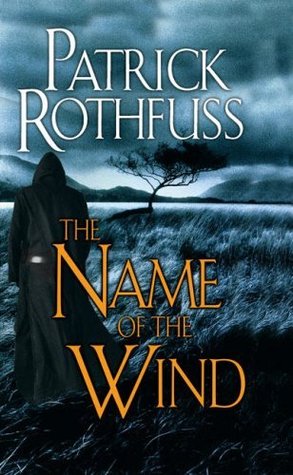Great books that just aren't all that great
Over at Slate, deputy books editor Juliet Lapidos is asking writers, books critics and editors to tell her their least favorite books from the great, canonical books. I found it quite interesting read and it made me think how probably we all, same as Juliet Lapidos with Thomas Hardy novels, sometimes find ourselves lost and frustrated after reading or attempting to read one of the universally acknowledged great novels.
For me one of such books is Wuthering Heights by Emily Bronte. After finishing the book, I read countless critical essays, reviews and analysis and I still feel that either I’m missing something or this novel just wasn’t all that great. While reading Wuthering Heights, I really wished that its characters would be real, so I would be able personally physically hurt all of them.
For instance, my grandfather, almost the whole his life was trying to love Leo Tolstoy’s books. Sometime, when he was around sixty, he was attempting to reread War and Peace again to finally get a grip of its greatness. Instead, he ended up shutting up the book with laud bang and pronouncing that he always thought that Tolstoy’s works were dull and he will never loved it. Mind, my grandfather was a compulsive reader, not just your casual, five books a year, case. And even though I disagree with him about Tolstoy in particular (I happen to be one of these people who find his works truly great), I completely understand him, how sometimes, even if you will spend half of your life trying, you just cannot love or at least acknowledge the greatness of one of the canonical books.
On the other hand, I always believed, same as Elif Batuman (one of the writes that is answering Juliet Lapidos question in the article) that the right book has to reach you at the right time. My mother, as it seems was always obsessed with this idea, handing out books to me with a phrase: “You will enjoy this book, considering your current age and state of mind.” And I must say that she posses a particular talent in this area, because almost all books she gave me became my favorites. Unfortunately, we don’t always have such a great advisers who know us and literature good enough to make a right suggestion. We grow up and starting to choose books ourselves. Some turning out to be a great misses, sometimes so great, it leaves a scar that might not heal until the rest of our lives.
Some books are imposed on us, imposed at the wrong time and for all the wrong reasons. I’m talking about required reading in school. I have a number of books that were forced upon me at school that I still hate with all my might. Crime and Punishment by Fyodor Dostoyevsky is a good example. It was a required reading when I was in 10th grade. I was barely able to finish it, sick and tired of whiney Raskolnikov. After that experience, not only I loathed Crime and Punishment, I hated Dostoyevsky, even though I haven’t read any other his works. It took me sometime and only this year I found enough bravery in myself to try something else by Dostoyevsky. To my greatest astonishment I loved Idiot and Notes from Underground. However, I still feel not ready to give Crime and Punishment another try, so it still stays on my list of the great books that just isn’t that great.
Also, we have to keep in mind that we are all different. We have different interests, different life experience, we come from different cultural, social, financial and educational backgrounds, so it is a silly idea that every so-called great book should speak to every individual that reads it. We have our preferences in stories, writing styles and characters. For instance, Edgar Allen Poe’s writing is superb, in my opinion; however, his stories never really made much sense to me (The Fall of the House of Usher – honestly, why didn’t he let his beloved sister out the moment he realized that she was buried alive). Sometimes I might like the story (The Scarlet Letter by Nathaniel Hawthorne), but not able to stand the writing style (how she talks to her daughter, frankly, I don’t think that anyone, in any century ever talked to children in such a pompous, overly dramatic, histrionic manner). Sometimes it is very hard for a reader to overcome prejudice and get out of the comfort zone, but it doesn’t mean that we should never try.
So, what is your list of great books that just aren't all that great?







